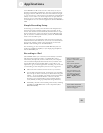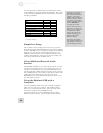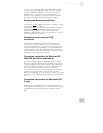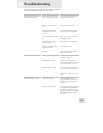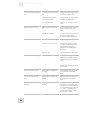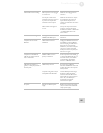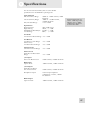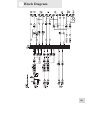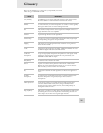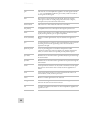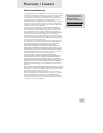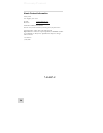
Glossary
32
gain The measure of extra amplification applied to an audio signal. Channels
1 – 4 on your iMultiMix 8 USB have gain controls, which are useful for
boosting mic and line signals.
level The amount of power driving an audio signal. The most common
names given to levels of varying voltage are, from lowest to highest,
microphone level, instrument level and line level.
master section The section of a mixer where the main mix is controlled.
mic preamp An amplifier that boosts a microphone-level signal up to line level.
mixer A device whose purpose is to combine and output a number of audio
signals, allowing various types of signal manipulation.
mono (monaural) Refers to an audio signal that has only one channel. The opposite of
stereo.
pan
A
control that lets you position a mono signal within the stereo spectrum
by altering the level of the signal being sent to the left channel as
opposed to the right.
phantom power A way of providing power to condenser microphones. Called
“phantom” because the power isn’t apparent to dynamic microphones
when you connect them to an input that provides phantom power.
post-fader Describes an aux send that sends a signal that already has passed through
the channel fader.
pre-fader Describes an aux send that sends a signal that has not passed through the
channel fader.
return A line input whose function is to carry back to the mixer an audio signal
that has been sent from the mixer. Usually used in the application of
effects.
send A line output whose function is to send a signal from the mixer to an
external device, usually an effects processor.
stereo Refers to an audio signal that has two channels.
unity gain Refers to the setting of an audio channel at which the signal leaves the
channel at the same level at which it entered.
wet An audio signal that has had effects or other manipulations applied. The
opposite of “dry.”



